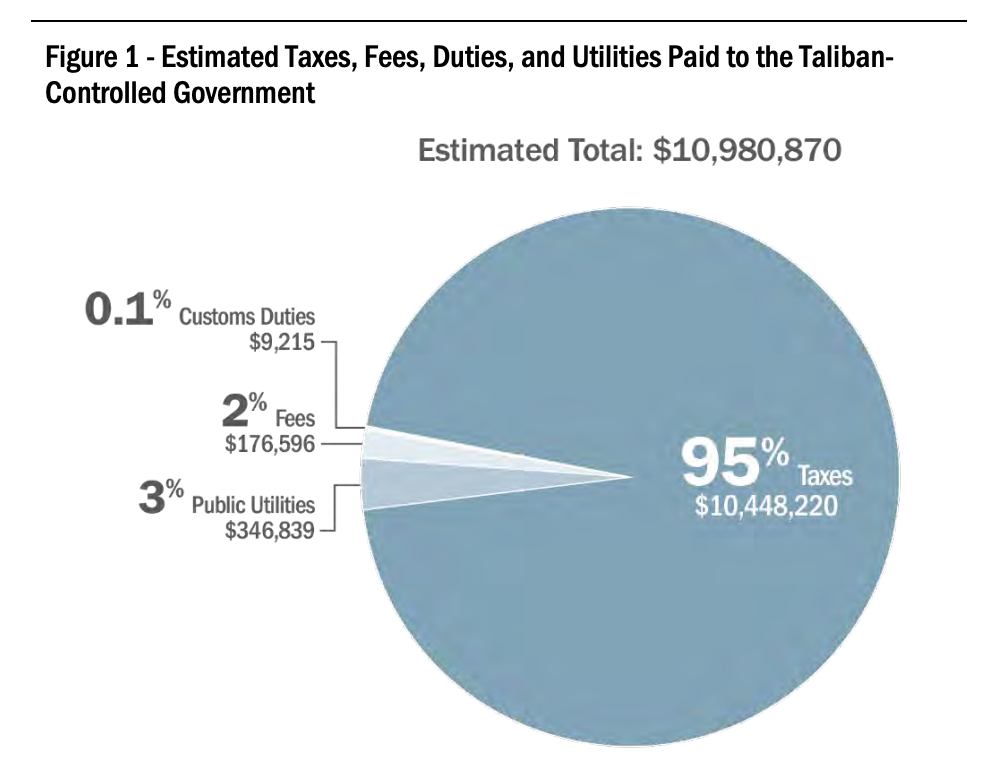The U.S. Special Inspector General for Afghanistan Reconstruction (SIGAR) has released a report revealing that U.S. implementing partners in Afghanistan paid at least $10.9mn to the Taliban government since August 2021. How did these funds, meant for humanitarian and reconstruction efforts, get diverted to the Taliban? The answer: taxes, fees, and utilities.

According to the report, 38 out of 65 U.S. implementing partners made these payments, which included $10.4mn in taxes, $346,839 in utilities, $176,596 in fees, and $9,215 in customs duties. SIGAR believes that the actual amount could be much higher, as payments by UN agencies receiving U.S. funds were not included due to a lack of data.
From October 2021 to September 2023, the United Nations received $1.6bn in U.S. aid for Afghanistan, accounting for nearly 63% of all U.S. aid to the country during that period. Despite their tax-exempt status under international conventions, UN agencies' subcontractors were still required to make various payments to the Taliban. This indicates a significant gap in oversight and reporting, as U.S. agencies like the State Department and USAID did not consistently enforce comprehensive tax reporting clauses in their agreements.
The report also goes into the challenges faced by implementing partners due to Taliban interference. The Taliban imposed additional taxes and fees, attempted to divert aid, and pressured NGOs to conform to their demands. Some partners reported being forced to recruit specific individuals or deliver aid to populations selected by the Taliban.
1. Expand foreign tax reporting requirements to all U.S. award agreements in Afghanistan, covering all types of taxes, fees, duties, and utilities.
2. Ensure responsible officials include these foreign tax reporting requirements in all applicable award agreements.
3. Collect all required foreign tax reports from implementing partners.
4. Direct implementing partners to adhere to OFAC (Office of Foreign Assets Control) requirements to maintain records of transactions with blocked persons for five years.
Agencies mentioned in the report include USAID, the State Department, the U.S. Agency for Global Media (USAGM), the Department of the Treasury, OFAC, the United Nations, the Bureau for Humanitarian Assistance (BHA), the Bureau of Population, Refugees, and Migration (PRM), the Bureau of International Narcotics and Law Enforcement (INL), and the Bureau of South and Central Asian Affairs (SCA).
Comments (0)